Students will receive thorough guidance by their teachers on which courses would best fit to each student, among various interdisciplinary courses.
Together they will create the custom-made curriculum according to the themes students themselves have set.
Together they will create the custom-made curriculum according to the themes students themselves have set.
Learn Flexibly!1.Acquire specialized knowledge, ranging from basic to practical, in the transdisciplinary field
- Students learn the latest knowledge and technologie according to their interest ,deeply and widely in the well-balanced transdisciplinary academic fields.
-
Students learn the basics for tourism and business technologies in 3 approaches: humanities; social sciences; and natural sciences.
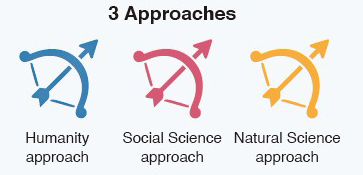
- Students deep dive into their own “theme” by learning back and forth between 3 core areas and 2 exploratory areas.
[ Core areas x Exploratory areas ]
The curriculum systematically allows students to learn cutting-edge contents while also acquiring the fundamentals.
3
Core Areas
Core Areas
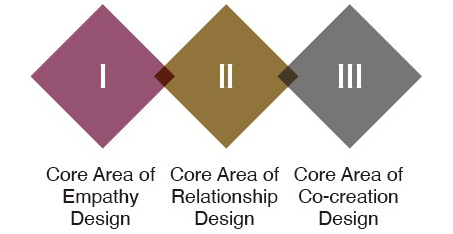
Various projects are assigned in order to learn cocreation in the society in a practical way, including setting up project bases around the town.
Study Fields for Students
2
Exploratory Areas
Exploratory Areas
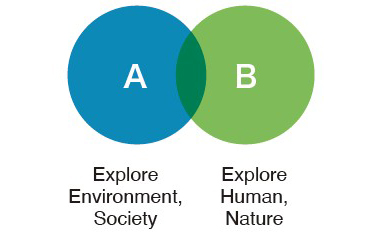
Based on the custom-made instruction, students study a variety of fields, charting a course towards their objectives, while going back and forth between two exploratory research areas.
Research Fields for Faculty
Parallel Study in 3 Core Areas
Students can take courses of three core areas in parallel, and decide their own projects while learning a wide range of future themes.
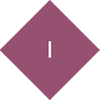
Core Area I
Empathic Design
Allocates courses that are useful to create a system to win empathy from the world by providing added value or discovering a new value to tourism resources, focusing on creating value in tourism.
Study Keywords
- #Sustainable Tourism
- #Culture Tourism
- #Entertaiment Management
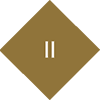
Core Area II
Relational Design
Allocates courses that are useful to create a system to build a relationship between tourists and tourist spots by sending information and communication, focusing on the “media” of transportation and information.
Study Keywords
- #Tourism VR/XR
- #Data Science Exercise
- #Social Trend Analysis on websites and online reviews

Core Area III
Co-Created Design
Allocates courses that are useful to create a system to offer opportunities and designs of tourism places that allow tourists, tourist sites, and residents to co-create, focusing on the meeting places and spatial designs.
Study Keywords
- #Community Designing
- #Landscape Designing
- #Hospitality Management
Back-and-forth Learning between 2 Exploratory Areas
The custom-made course guidance allows students to explore diverse fields and seek clues to solve their issues, while studying both 3 courses from the core areas, and 2 courses from the exploratory areas.
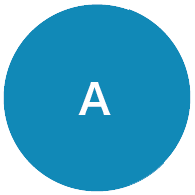
Exploratory Area A
Environment and Society
Students will acquire the cutting-edge expertise and practical skills necessary for the total optimal structural development of the environment and society.
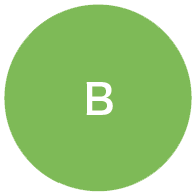
Exploratory Area B
People and Nature
Students will acquire the cutting-edge expertise and practical skills necessary for sustainable development of the basis of human race and nature.
POINTBack-casting learning
“Your future self” is the starting point to figure out and choose the learning contents that you need now.
When you envision your ideal self to be active in the future society, there may be areas where you feel you are not learning enough. In such a case, even after you have moved on to the academic knowledge phase, you can go back and study the specialized basic subjects.
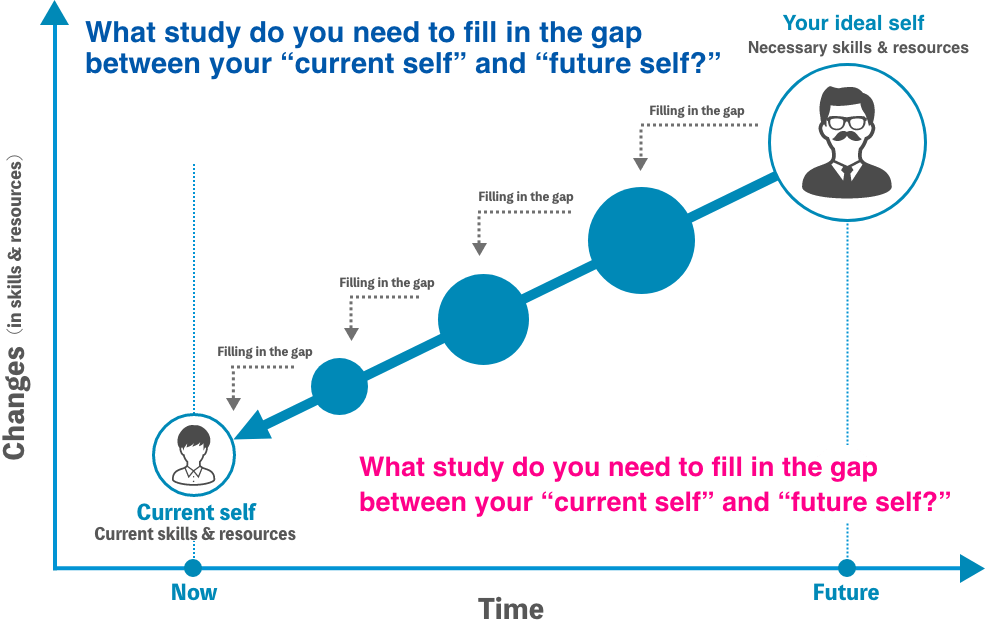
I would like to work in the field of tourism marketing for visitors to Japan, utilizing statistical data, and I’ve decided to take “Basic Mathematical Statistics,” one of the specialized basic subjects because I believe it will help me analyze statistical data with a new perspective in the future to learn about global climate change.
Go out into society!2.Learn co-creation and practical skills with society through participating in various projects
- Through Practical [JISSEN] & Disciplinary [TANREN] Courses, students learn co-creation within society.
- Practical trainings take place at the project bases in the city, in cooperation with local governments and industries.
- Students choose from practical approach in tourism business, study abroad programs in tourism Sciences and international internship programs to implement short- and long-term projects.
- Students create new tourism value in collaboration with society based on their expertise and free ideas.
[ Participating in a variety of innovative projects ]

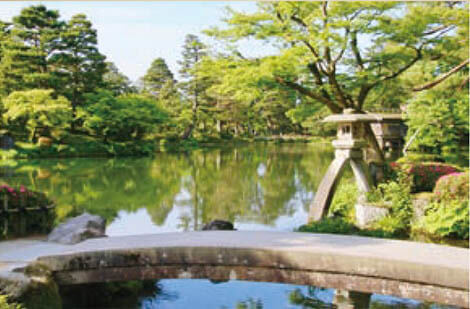
Kenrokuen
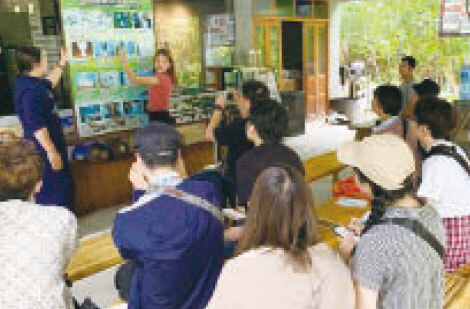
International Internship Programs
Regional Revitalization!3.Utilize valuable designs in tourism to influence the presence Meet increasingly in local communities.
- Students will design regional revitalization in the future, expecting the synergy effect of region, university and industry.
- Utilizing local resources, issues, and knowledge, students take a multifaceted view of thinking, ideas, and practices, and learn about economic revitalization, industrial creation and promotion, and development of new ideas based on study of the past.
- Students will learn practical solutions on a platform that originated in Kanazawa City, Ishikawa Prefecture.
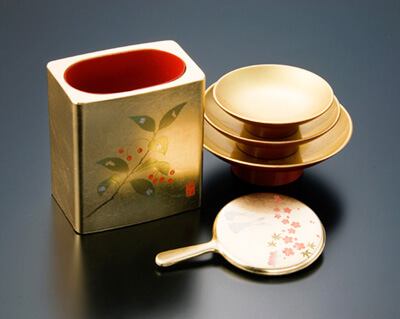
Gold Leaf Craft
(Kanazawa City produces 99% of gold leaf in Japan)
Photo provided by Kanazawa City


